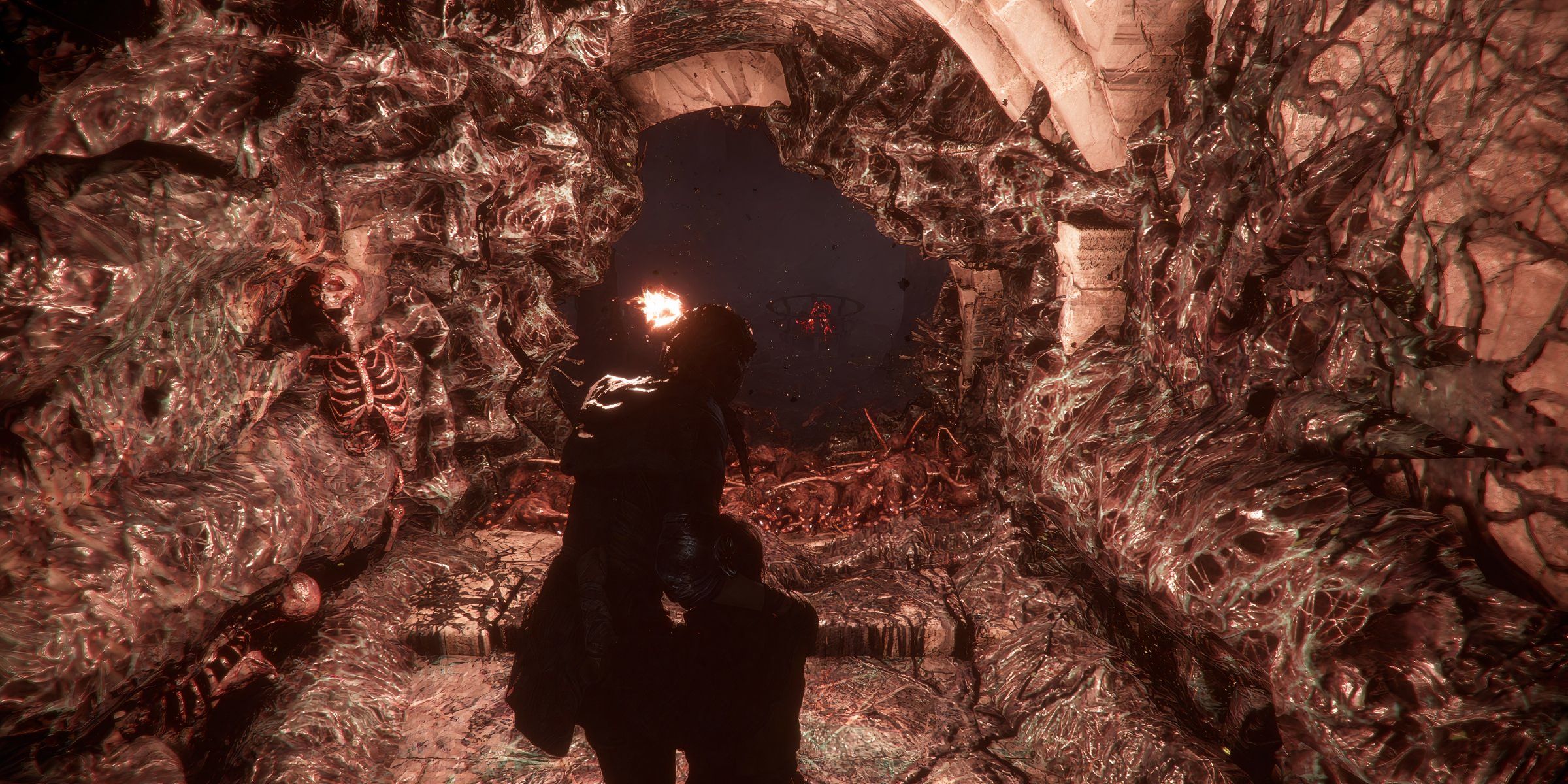In a modern era where genres can be as pliable as they are rigid, survival horror is certainly a genre in games that can stretch its limbs and take hold in the most unassuming or generic of gameplay features. The ‘horror’ aspect obviously needs to come through in one way or another, regardless of how effective it is, while the ‘survival’ aspect is important as it typically pertains to players needing to manage their health or inventory as they encounter or circumvent enemies in the environment. A Plague Tale’s Innocence and Requiem aren’t labeled as horror games and yet they’re both certainly evocative of such tropes, even when there aren’t hordes of rats to brandish torches at.
Indeed, A Plague Tale is arguably at its best during two kinds of story beats: ones that are somber and show the strained but loving familial connection between the de Rune family’s Amica and Hugo, and ones that are representative of how horrific the Macula is and its effect on the world via corpses piled in the street as feasts for disease-ridden rats. The latter is far and few between, but A Plague Tale: Requiem helps pick up this pace in this regard while also emphasizing violence more forwardly. In a hypothetical sequel to Requiem, it may be imperative for survival horror to be embraced fully.
A Plague Tale isn’t Inherently Frightening, But It Ought to Be
In many ways, A Plague Tale is more of a tragic tale than a scary one. This is especially succinct regarding the lens it’s presented through: Amicia and Hugo’s bond as sister and brother and how they interact with everyone they come across.
Unlike zombies or fantastical creatures,
A Plague Tale
’s rats also aren’t remotely as terrifying as most other video game enemies despite a lot of people having a fear of ordinary rats in real, modern-day life.
It’s true that these rats are fueled by the Macula, can be controlled to do the host’s bidding, and are generally more fearsome as they appear in hordes that amount to overwhelming volumes, but there isn’t much that’s inherently scary about the beady-eyed rodents in gameplay when players have a torch equipped. That said, A Plague Tale’s tone and atmosphere can surely evoke horror and disgust when players must also wade through frenched carcasses in the aftermath of a horde’s presence.
Similarly, The Last of Us isn’t a horror game and yet it certainly bridges that gap and contains more than its fair share of frightening and grisly imagery between runners, stalkers, clickers, shamblers, bloaters, and the Rat King before literal cannibals and human traffickers are even a part of the conversation. But while The Last of Us’ action-adventure duology does lean into these horror motifs heavily, A Plague Tale hasn’t quite made that leap yet and could gain a lot by doing so if it ever devises a way for a third entry to be plausible.
A Plague Tale Has the Wherewithal to Be a Competent Survival Horror Series
Pluck The Last of Us’ David boss fight and drop it into any standard horror game and it wouldn’t be out of place. David is so legitimately intimidating in this cat-and-mouse sequence as he scurries around and players aren’t always aware of which corner he could be lurking around, especially when players themselves are trying not to walk across shattered glass and alert David to their presence.
The cat-and-mouse Count sequence in A Plague Tale: Requiem mirrors this fairly closely, albeit with a less scary antagonist to flee from, and is a movement in the correct direction if the series ever was to dip a big toe into horror. If any IP has a chance to revel in burgeoning horror with no restraints it’d be A Plague Tale—only time will tell, now, if a third game is even on the table at all.

/cdn.vox-cdn.com/uploads/chorus_asset/file/23024358/GoogleChromecastwithGoogleTV.jpg)

.jpg)




